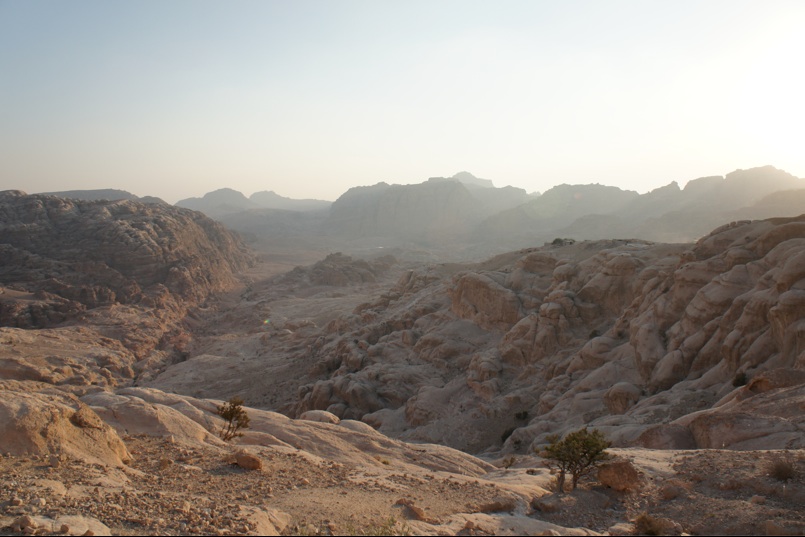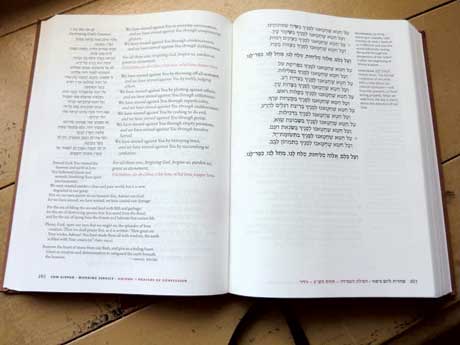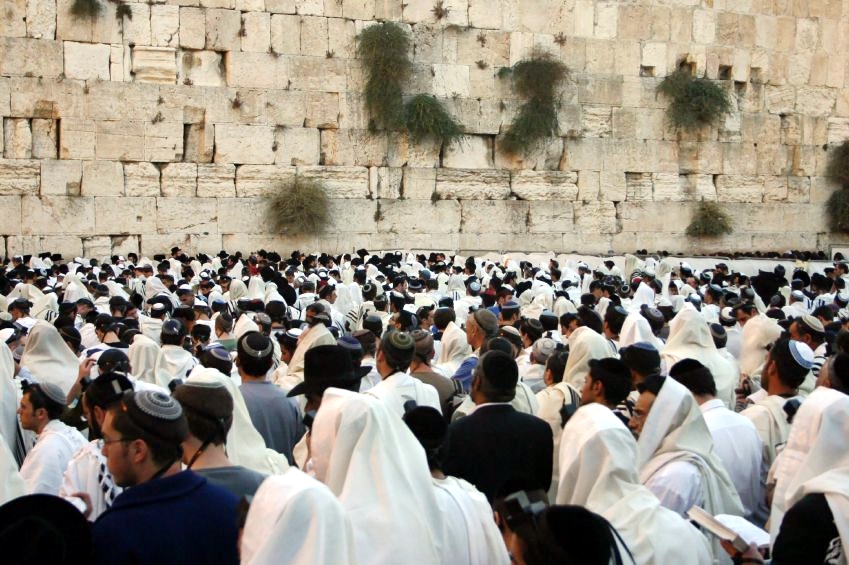
(3-4 Minute Read)
Deuteronomy 32:1-52
Ha’azinu is a relatively brief Torah portion primarily encompassing a poetic declaration by the Almighty for the posterity of the Jewish people. The poem first calls for the heavens and the earth to “hear” (ha’azinu) the words of the Most High. The Eternal One is described as “the perfect Rock” and the sinfulness of humanity, in particular the Jewish people, is lamented. The Holy One, Blessed Be He, allotting territory to the nations, including the Jewish people, is then recounted. But in the abundance of blessing from the Almighty, the Jewish people became arrogant and rebellious, rejecting their Rock and instead turning to idolatry. The anger of the Most High is noted, as well as the destructive judgments that followed. However, although the Eternal One enabled the enemies of Israel to punish them, harsh judgment would also come upon these nations. There is no deity besides the Almighty, and only He decrees life and death. Accordingly, both the Jewish people as well as the other nations are implored to be loyal to the Creator. And the Jewish people will be avenged of those who seek to destroy us. The parasha, or Torah portion, concludes with a final admonition by Moses that the Jewish people must observe the Torah as “a matter of life and death.” And then the Eternal One confirmed that Moses would view the land of Israel from afar on top of the mountain and pass away that same day.

As stated in Devarim (Deuteronomy) 31:19-21, the Almighty dictated this poem to Moses as a warning and testimony against the Jewish people for the occasions in which they would abandon Him and the Torah. And indeed, the poem of Ha’azinu is in many aspects a succinct summary of nearly every prophetic book, especially Jeremiah. The concepts are essentially the same: the Eternal One brought the Hebrews out of the land of Egypt and gave us the Torah at Mount Sinai. Later, the Jewish people were brought into the land of Israel and made into a nation. However, the Israelites went astray after false gods and goddesses, rejecting the Torah and engaging in idolatry, immorality, oppression, and baseless hatred. And the Almighty implored the Jewish people to return to Him and the Torah before the consequences of their disobedience could unfold. In many cases the punishment of the Jewish people came in the form of destructive oppression by their enemies. But even these enemies enacting the punishment of the Holy One, Blessed be He, were not immune to judgment. And eventually the Most High avenged His people against them upon the repentance of the Jewish nation. These themes are exactly the messages of the prophets, especially relating to the destruction of the first Beit HaMikdash (the Holy Temple) and the ultimate downfall of the Babylonian and Assyrian empires.
The poem of Ha’azinu is read in the synagogue each year during the Ten Days of Awe between Rosh HaShanah and Yom Kippur. Accordingly, it is particularly appropriate as the core theme is the ongoing judgment of both the Jewish people as well as the non-Jewish nations.
In Pirkei Avot 2, Rabbi Hillel famously uttered, “Because you drowned others, they drowned you; and ultimately those who drowned you will themselves be drowned,” when he saw a sull floating on a body of water (presumably the Tigris or Euphrates Rivers in Babylon).

The principle being expressed both in Ha’azinu as well as Pirkei Avot relates to the cyclic system of judgment — the same system that we acknowledge and participate in during the holy days of Rosh HaShanah and Yom Kippur. The premise is that the judgment of the Most High is complete, all encompassing, and both gracious and just.
One question that has plagued the Jewish people throughout our history is why it sometimes seems that we are chastened and punished for our sins as a nation while the non-Jewish nations, even our oppressors and persecutors, appear to thrive. These complaints can be found all throughout the Tanakh narrative, ranging from the pre-Torah account of Job to the return of the exiles from Babylon. Job’s family and possessions were all destroyed, partly by Sabaean and Chaldean raiders. In response, Job complained, “Why do the wicked live on, prospering and growing wealthy?” (Job 21:7) Similarly, after the return of the Babylonian exiles, the Jewish people were also discouraged. The Almighty commented on the situation through the prophet Malachi.
“You [the Jewish people] have said, ‘It is useless to serve G-d. What have we gained by keeping His commands and walking in strict reverence for the L-RD? And so we account the arrogant as happy; they have indeed done evil and ednured; they have indeed defied G-d and escaped.’” (Malachi 3:14-15)
The Almighty responded by declaring that He had heard it and taken note of it, and that a scroll of remembrance had been written on behalf of those who revered the Most High. And “on that day that the Eternal One is preparing,” those who esteem the Master of the Universe will be “His treasured possession” and be rewarded accordingly. And “on that day” the difference between the righteous and the wicked would be apparent to all. (Malachi 3:16-18)
The Days of Awe between Rosh HaShanah and Yom Kippur are a time of reflecting on the annual judgment process in which the entire world — and especially the Jewish people — are assessed. At times it is difficult to understand the judgment of the Most High. Why do some who are righteous suffer and others are unrighteous prosper? Why is the Eternal One seemingly gracious to some and not to others, and not always in accordance with our perspective of how the world should be?

This was the complaint of the Torah observant Jews of the post-exilic period almost two and a half thousand years ago. And the response of the Almighty was that, while His judgment process might not operate in the manner and especially not the time frame that we would prefer, the Master of the Universe is indeed actively noting and judging us all in both mercy and justice. Eventually we will see the blessings that arise from observing the Torah and maintaining our loyalty to the Most High.
And that idea is echoed in Ha’azinu in Devarim (Deuteronomy) 32:4 in which the Almighty declared:
“The Rock! — His deeds are perfect. Indeed, all His ways are just; a faithful G-d, never false; He is true and upright.”
May the Holy One, Blessed Be He, grant us the opportunity and the strength to proceed from Rosh HaShanah to Yom Kippur in a spirit of teshuvah, or repentance, and rededication of ourselves to the Almighty and His Torah. And may the Holy One, Blessed be He, accept our prayers and repentance according to His will as defined by His abundant mercy and loving favor.


